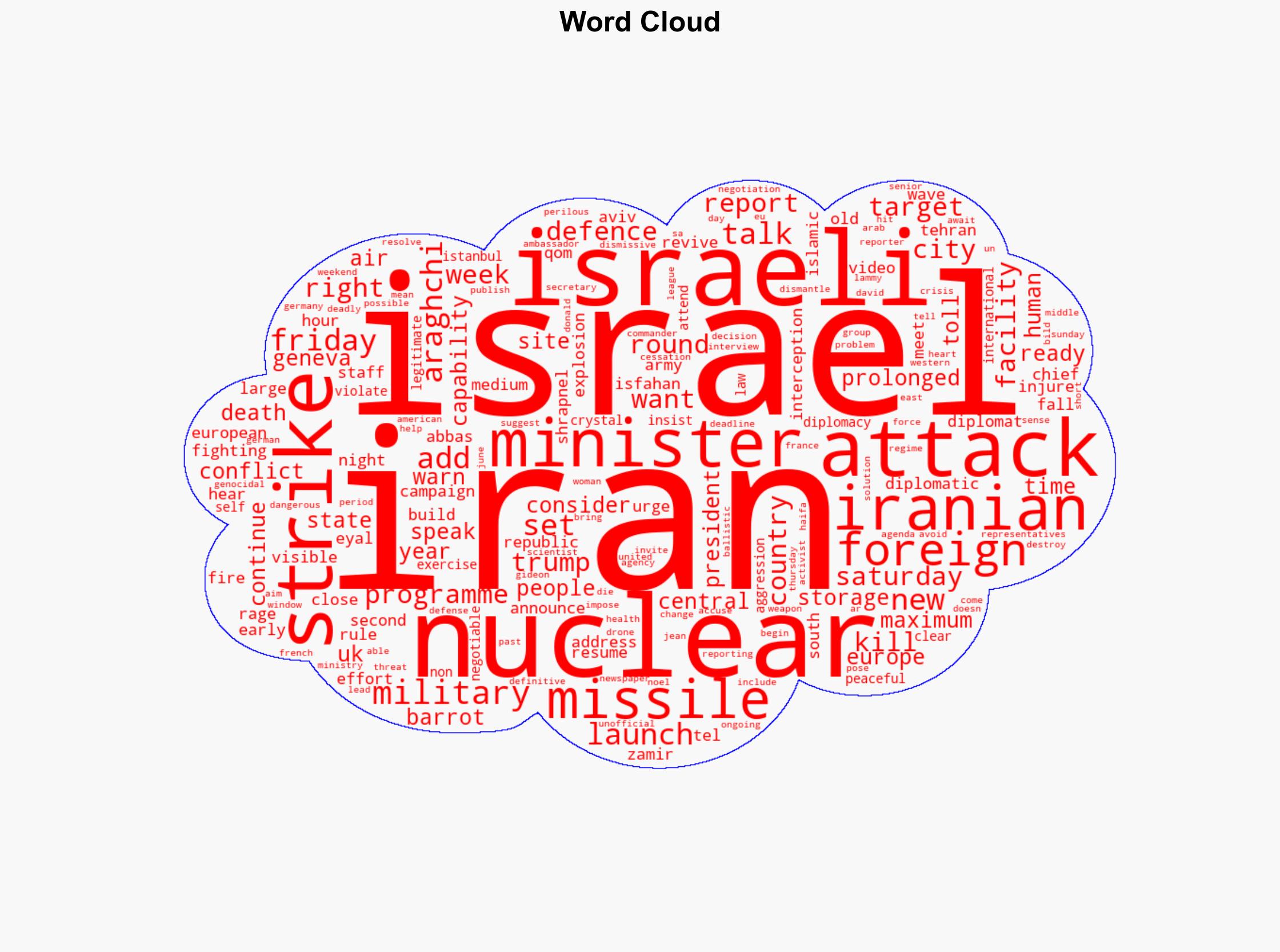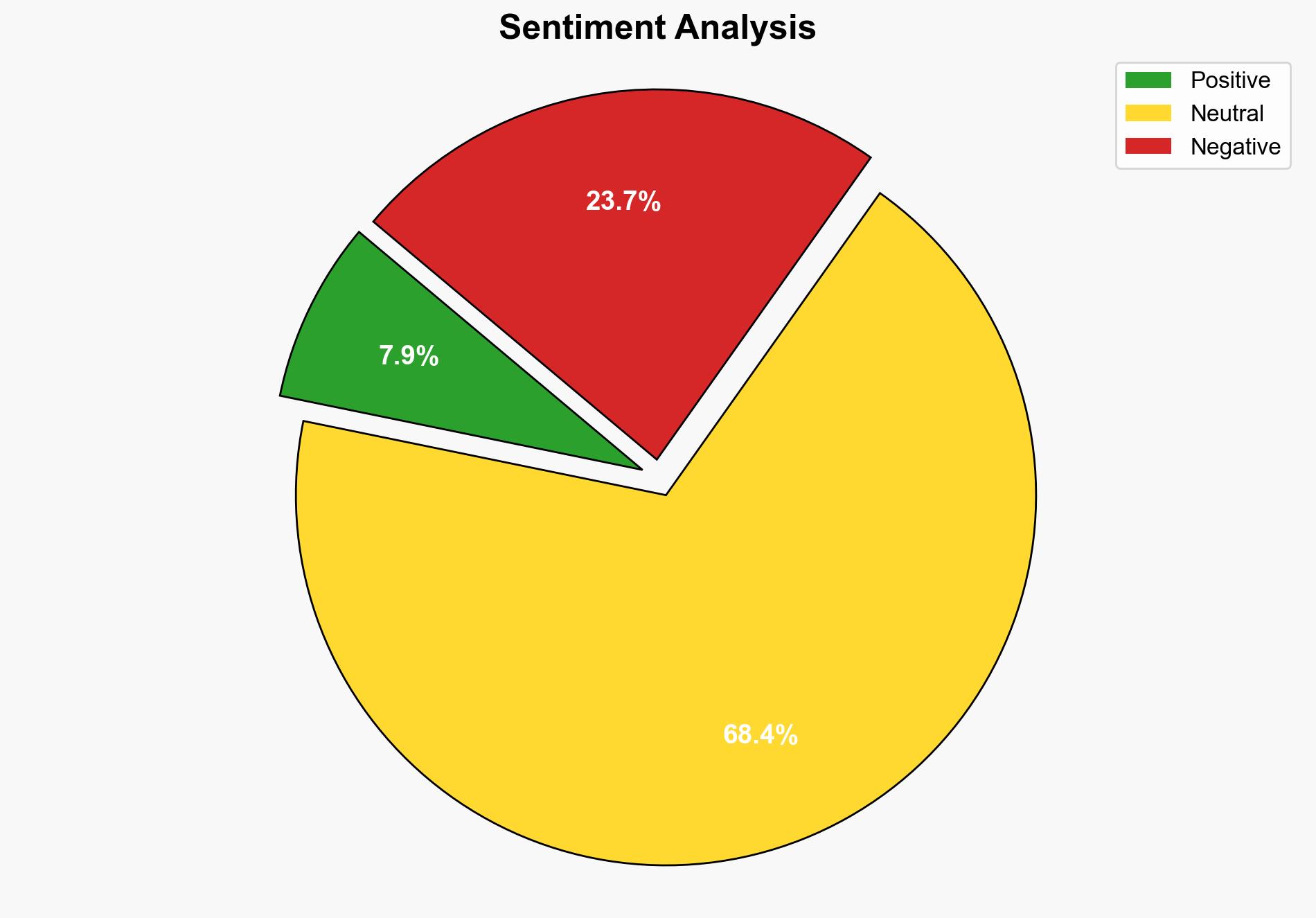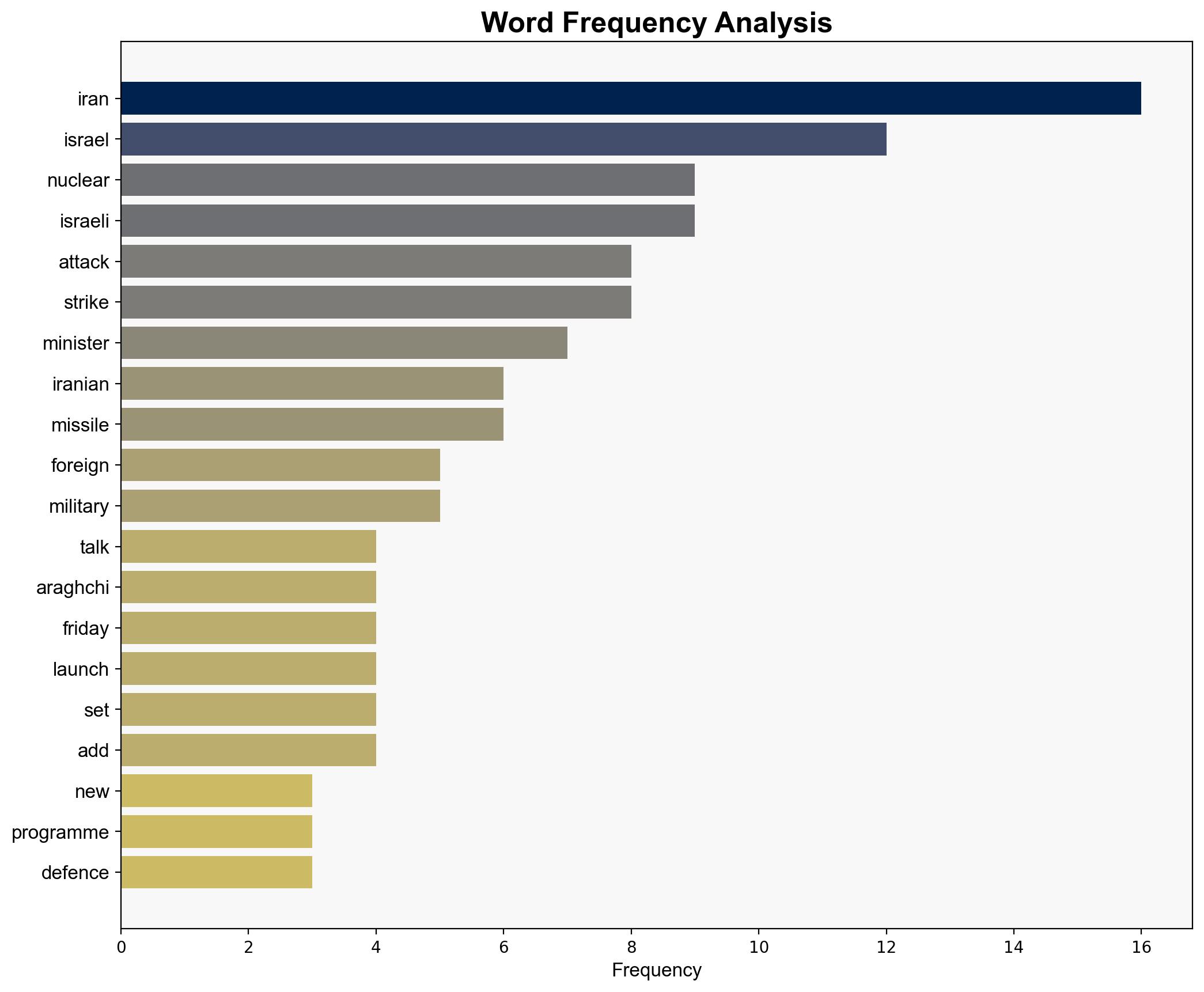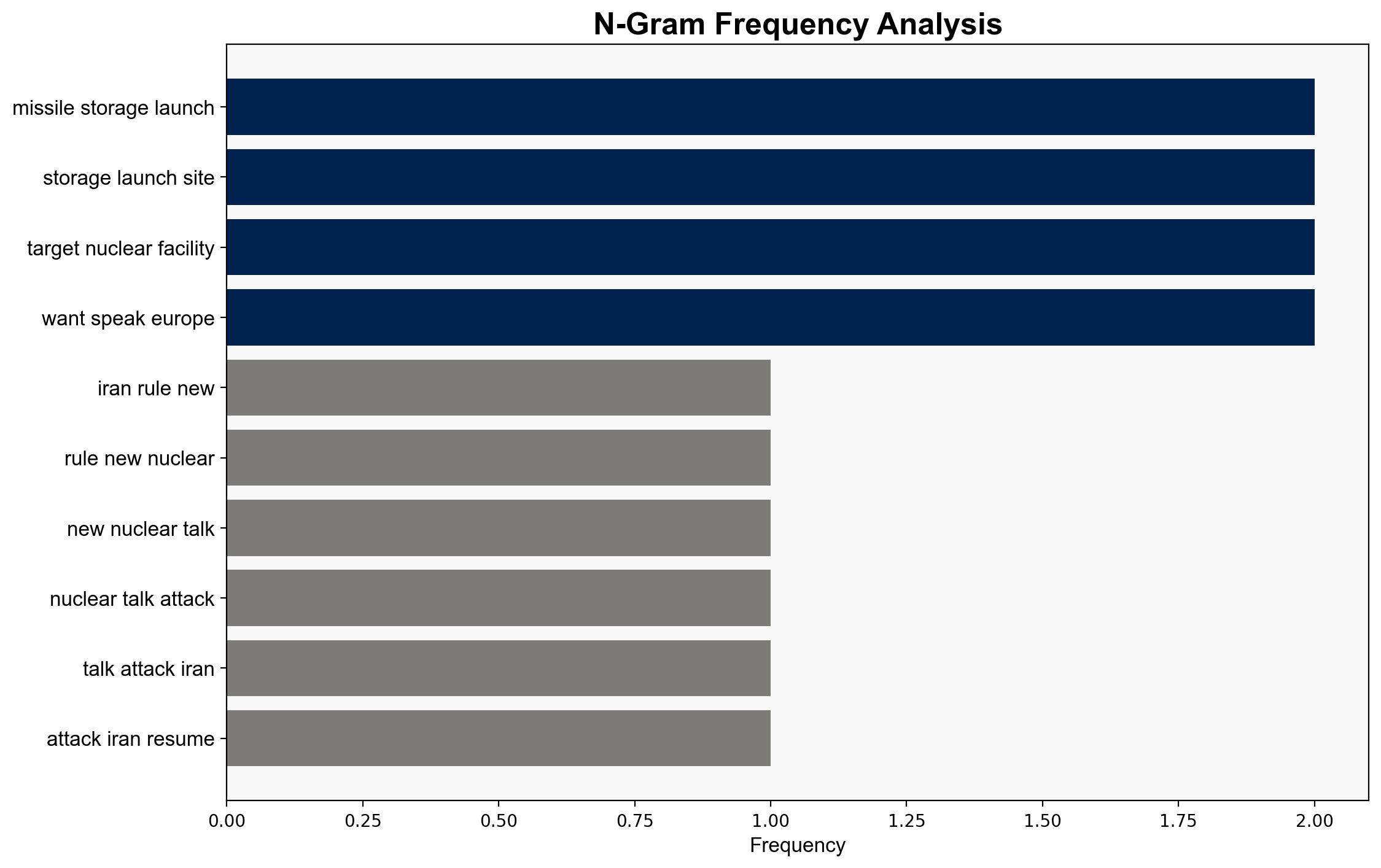Iran will consider diplomacy when aggression stops foreign minister says – BBC News
Published on: 2025-06-20
Intelligence Report: Iran will consider diplomacy when aggression stops foreign minister says – BBC News
1. BLUF (Bottom Line Up Front)
The current escalation between Iran and Israel poses significant risks to regional stability. Iran’s willingness to engage in diplomacy is contingent upon the cessation of Israeli military actions. The situation is further complicated by international involvement, notably from the United States and European powers. Immediate de-escalation efforts are recommended to prevent further conflict and potential nuclear proliferation.
2. Detailed Analysis
The following structured analytic techniques have been applied to ensure methodological consistency:
Causal Layered Analysis (CLA)
Surface Events: Recent missile exchanges between Iran and Israel, including attacks on nuclear facilities and urban areas.
Systemic Structures: Ongoing geopolitical tensions, military alliances, and nuclear non-proliferation concerns.
Worldviews: Iran’s perception of self-defense against perceived Israeli aggression and Israel’s security concerns over Iran’s nuclear capabilities.
Myths: Historical narratives of existential threats and regional dominance.
Cross-Impact Simulation
The conflict could destabilize neighboring countries, disrupt global oil markets, and trigger broader military engagements involving allied nations.
Scenario Generation
Best Case: Diplomatic negotiations resume, leading to a de-escalation of military actions and renewed nuclear talks.
Worst Case: Escalation into a broader regional conflict, potentially involving major powers and leading to significant civilian casualties.
Most Likely: Continued tit-for-tat military exchanges with intermittent diplomatic efforts.
3. Implications and Strategic Risks
The ongoing conflict presents risks of regional instability, potential nuclear proliferation, and economic disruptions. Cybersecurity threats may increase as state and non-state actors exploit the situation. Political alliances could shift, affecting global diplomatic dynamics.
4. Recommendations and Outlook
- Encourage immediate diplomatic engagement between involved parties to de-escalate tensions.
- Strengthen cybersecurity measures to protect critical infrastructure from potential cyber-attacks.
- Monitor regional alliances and prepare for shifts in geopolitical alignments.
- Scenario-based projections suggest prioritizing diplomatic channels to avoid worst-case outcomes.
5. Key Individuals and Entities
Abbas Araghchi, Eyal Zamir, Gideon Sa’ar, Donald Trump, David Lammy, Jean-Noel Barrot
6. Thematic Tags
national security threats, cybersecurity, counter-terrorism, regional focus





